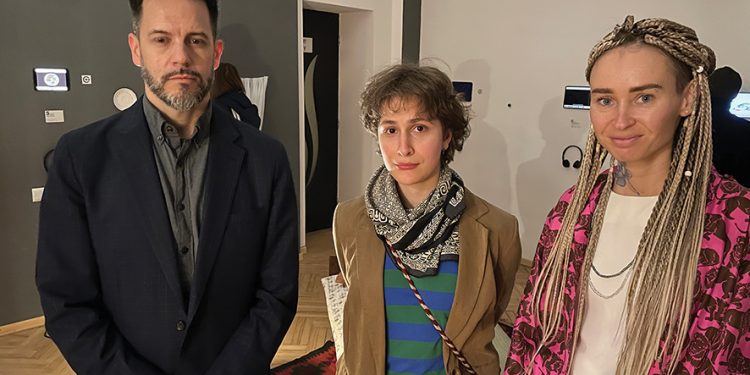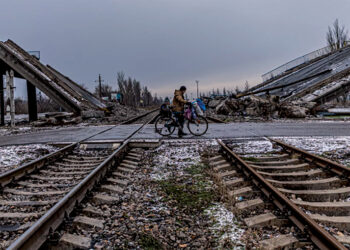The Symbol of Freedom is the name of a new exhibition at Corner House Coffee/Caucasus Culture Exchange (details below) which opened a few days ago. I was able to attend the opening evening, which saw a lot of guests, and also to conduct an interview with the person who set it up, Mariat Abdulakhmidova, a member of crisis group “Marem,” which helps women of the North Caucasus who suffer from domestic violence.
“I have eight cousins in Dagestan; they are beautiful girls of different ages, all born into loving families. But my heart breaks when I imagine girls who face violence on a daily basis. And it is very important to talk about it,” Mariat says.
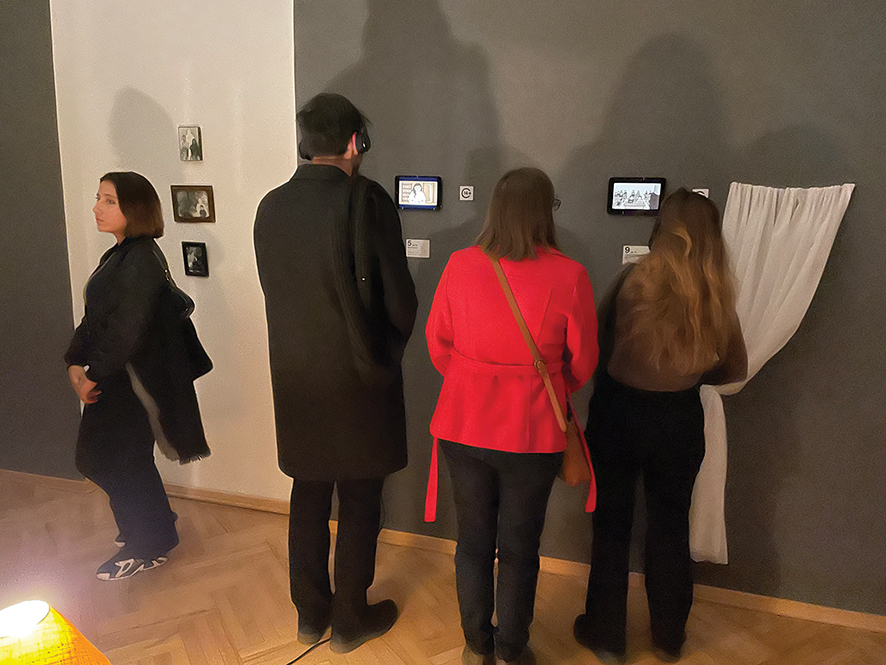
How did it happen that you connected with the Caucasus Culture Exchange and arranged this exhibition?
“Last summer, I was working on another exhibition project in Georgia, and at the same time, the first exhibition of Giovannino Gabadze opened at CCE,” she says. “I loved the space, and as soon as we started discussing the exhibition, I was one hundred percent sure that we should show it here. It was important to me that our values coincided. I wrote to Michelle Gagnon and we agreed pretty quickly about setting up the show, for which I am very grateful. Then I found out that Eli Moyer had earlier spent a lot of time in Daghestan.
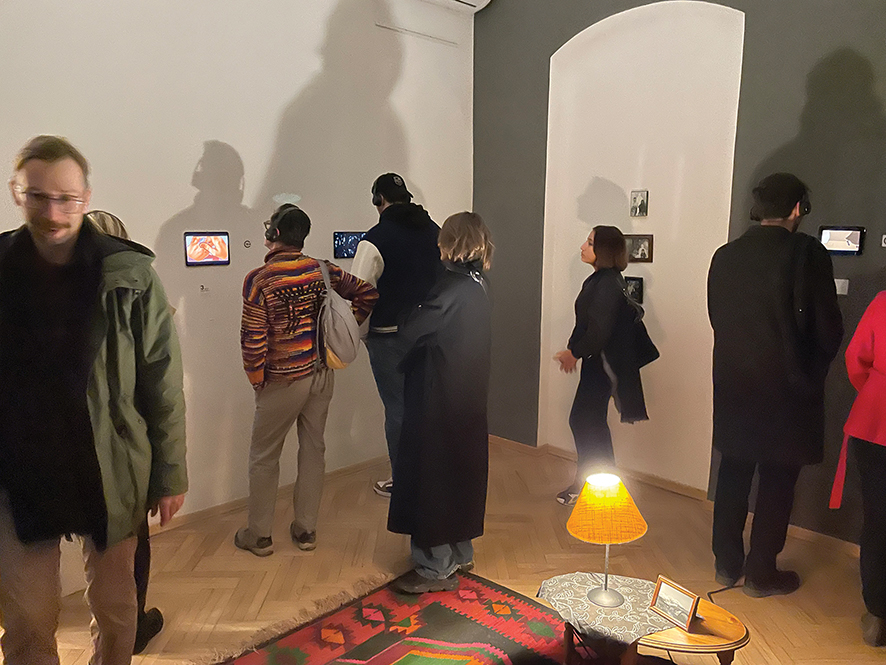
What do you hope viewers will take away from the exhibition?
“Above all, I want people to know that they have somewhere to go for help if they need it.
“After the opening, we discussed the exhibition a lot with my friends from the North Caucasus. I wouldn’t want viewers to come away from the exhibition thinking that the North Caucasus is a center of domestic violence. But this is indeed one of the big and important problems that I hope we can solve in the future.
“The exhibition features a number of iPad screens, each showing a different animated video in Russian with English subtitles. Viewers can listen to each video’s narration on headphones if they wish, or simply watch and read the subtitles. The gallery is also “decorated” with symbols of the situations depicted in the videos, such as a bedroom scene and an item of women’s clothing,” Mariat tells us.
These are harrowing and very moving stories of violence against women in Daghestan—not a problem unique to Dagestan, but nevertheless highlighted here. The show is open Feb. 2, 3 and 6, from 11am to 7pm, so get it while it lasts! Note, this exhibition is not recommended for under 16s.
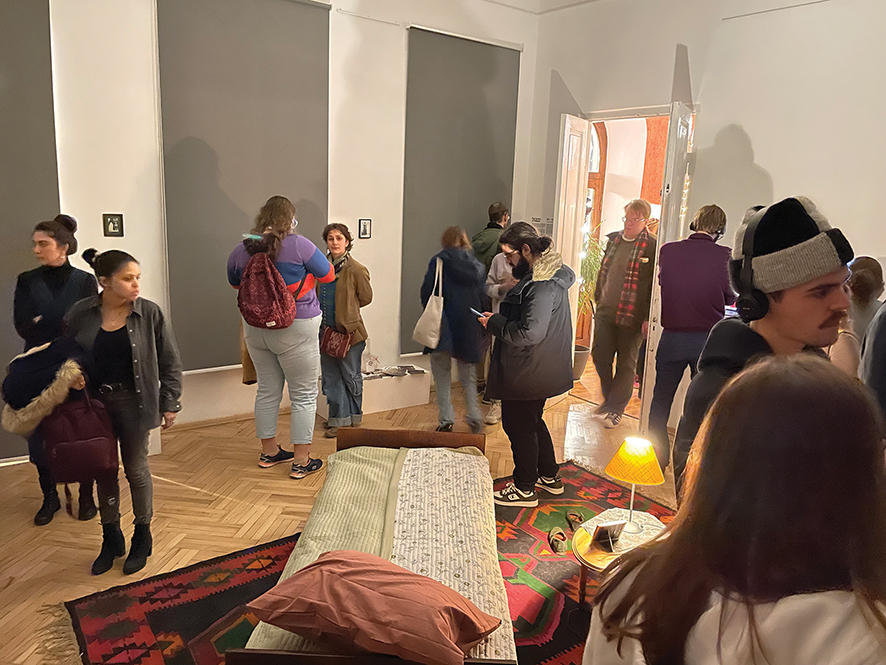
Gallery details
109 David Aghmashenebeli Avenue, Tbilisi, 2nd floor (~10 minutes’ walk from Marjanishvili metro towards Dinamo Stadium): Facebook.
https://www.instagram.com/marem_group_/ Assistance to women from the North Caucasus; psychological & legal support, evacuation; email: support@maremgroup.com
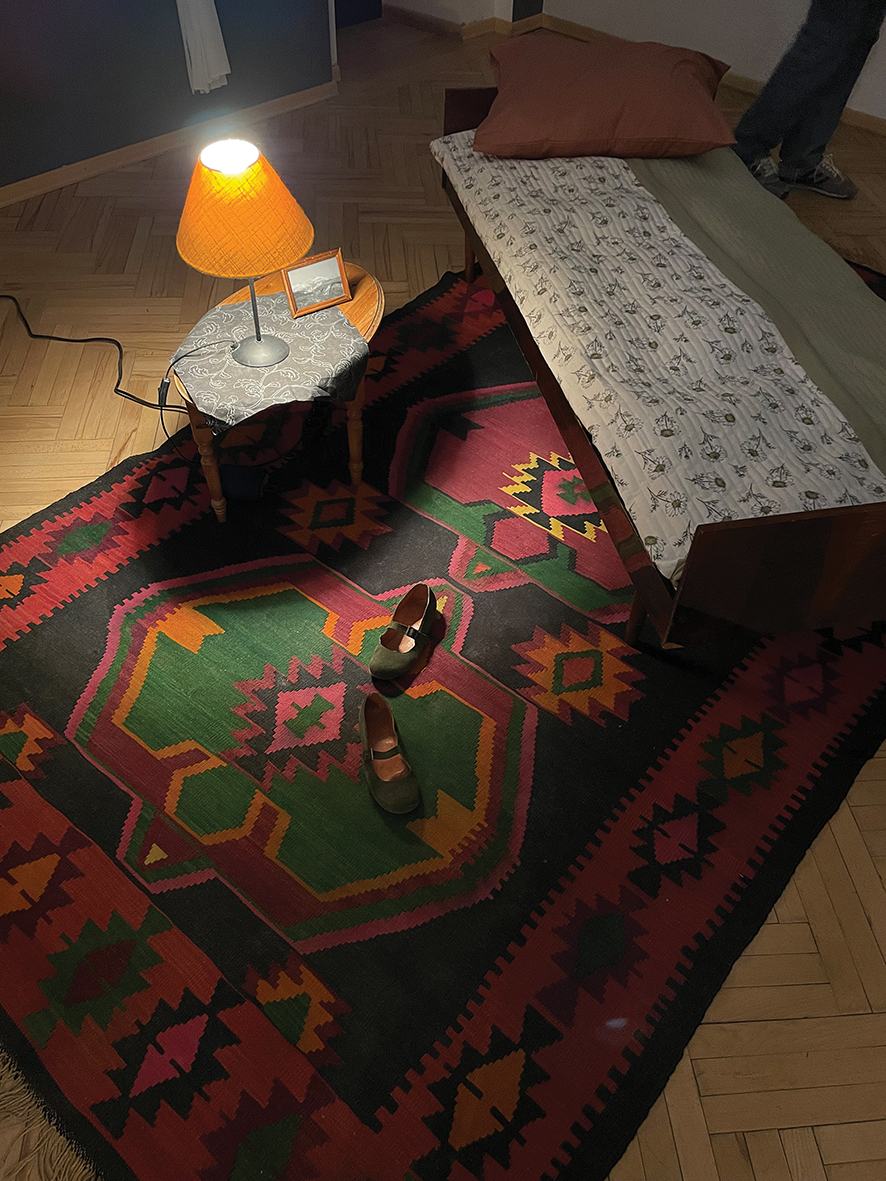
Where to go for help in Georgia
Hotline for victims of domestic violence: 116006 (24/7, free, anonymous, in eight languages)
Sapari—legal, social and psychological assistance. Tel. 032 230-7603, email unionsapari@gmail.com
Rights Georgia—general legal assistance. Tel. 032 299-8856, for help in gender-based and domestic violence: Tel. 577 541655, email office@rights.ge
The Human Rights Center—legal assistance. Tel. 032 237-6950, 032 238-4648, email hrc@hrc.ge
Partnership for Human Rights—strategic litigation in cases of violence against women. Tel. 032 233-1356, email info@phr.ge
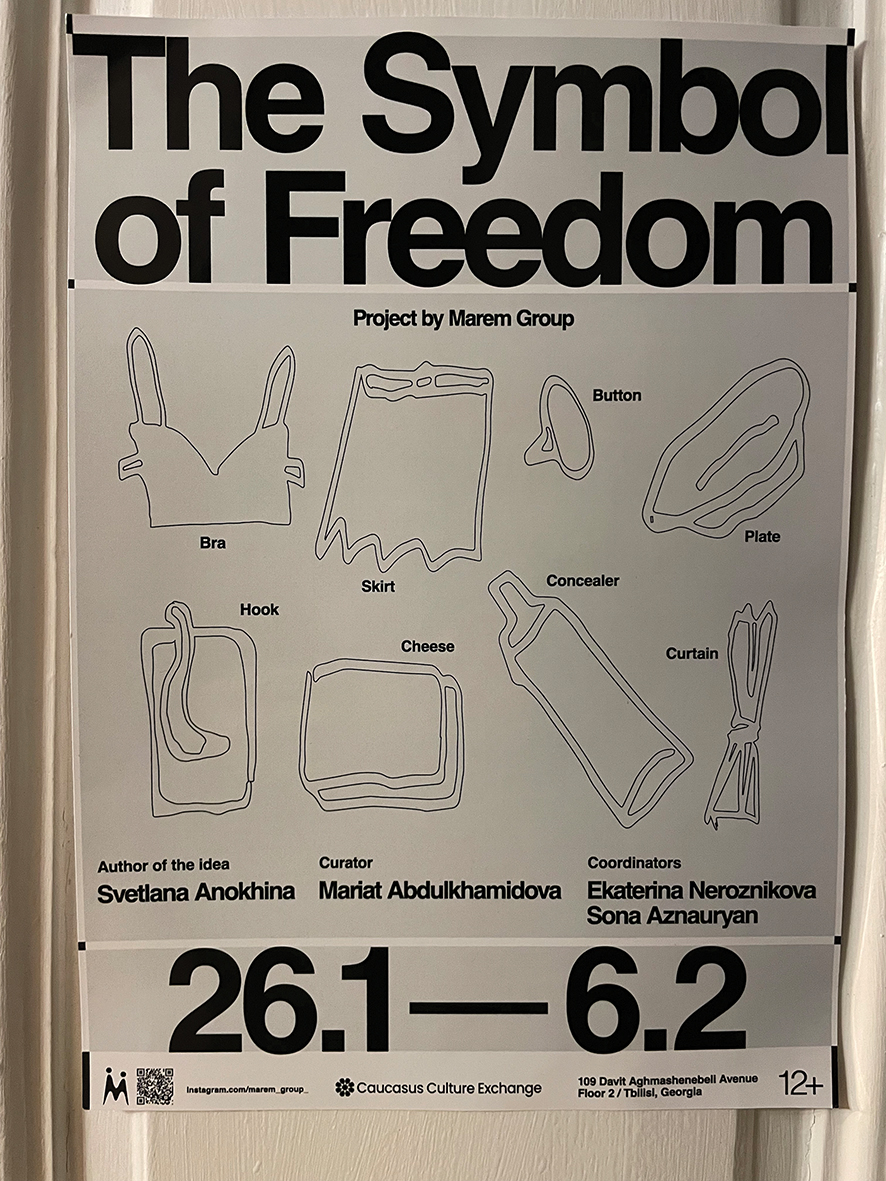
BLOG by Tony Hanmer
Tony Hanmer has lived in Georgia since 1999, in Svaneti since 2007, and been a weekly writer and photographer for GT since early 2011. He runs the “Svaneti Renaissance” Facebook group, now with over 2000 members, at www.facebook.com/groups/SvanetiRenaissance/
He and his wife also run their own guest house in Etseri: www.facebook.com/hanmer.house.svaneti

